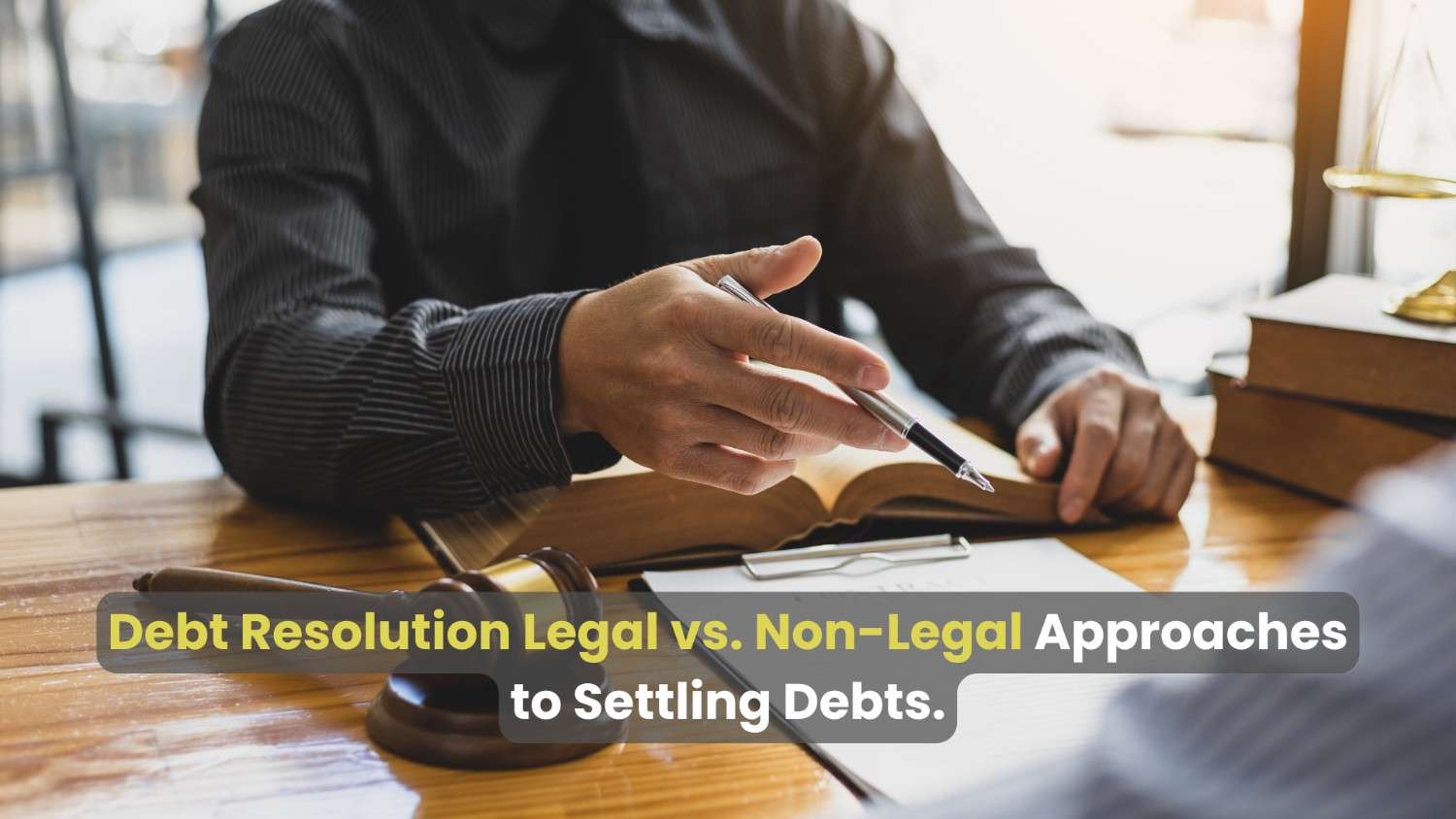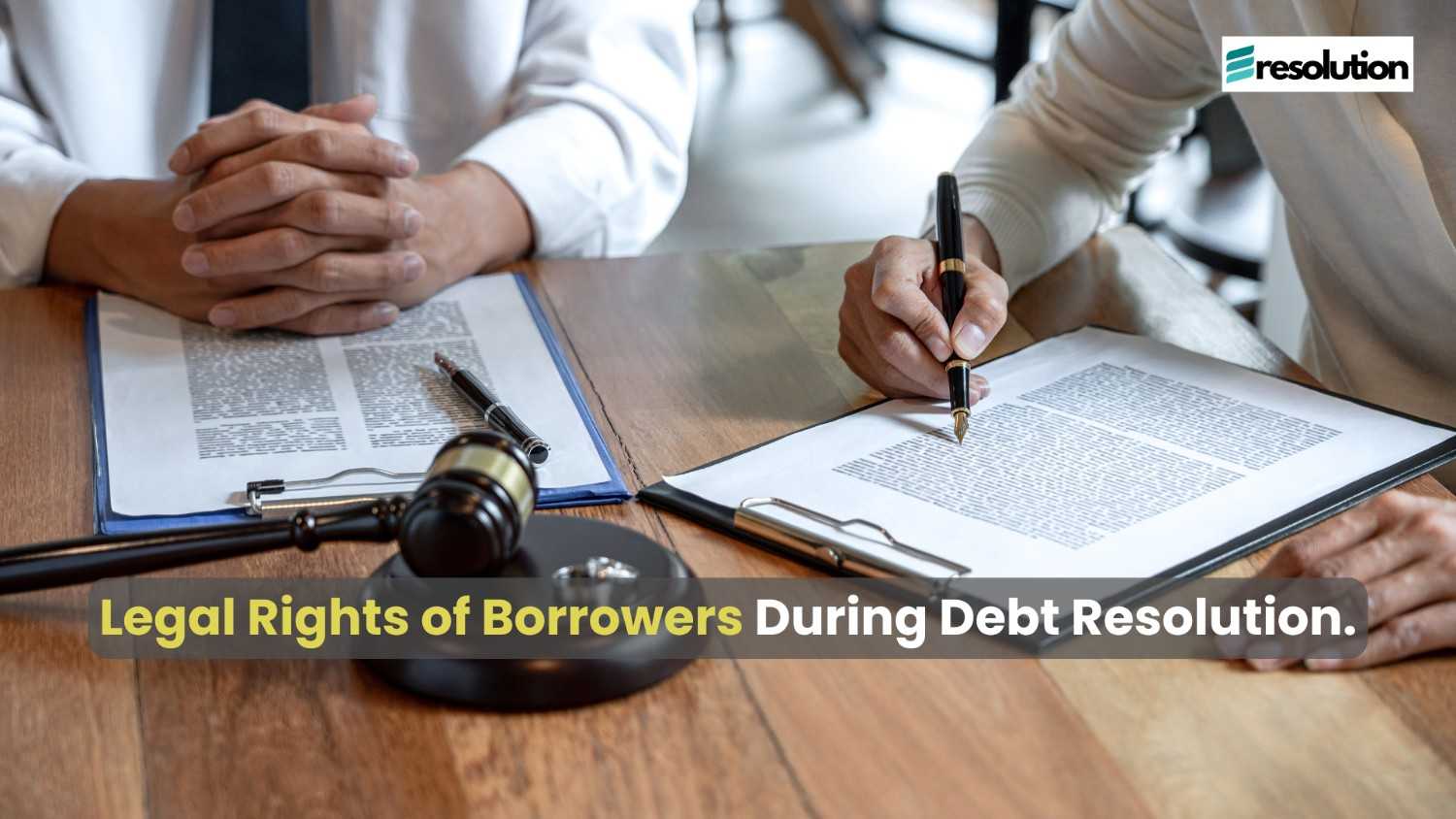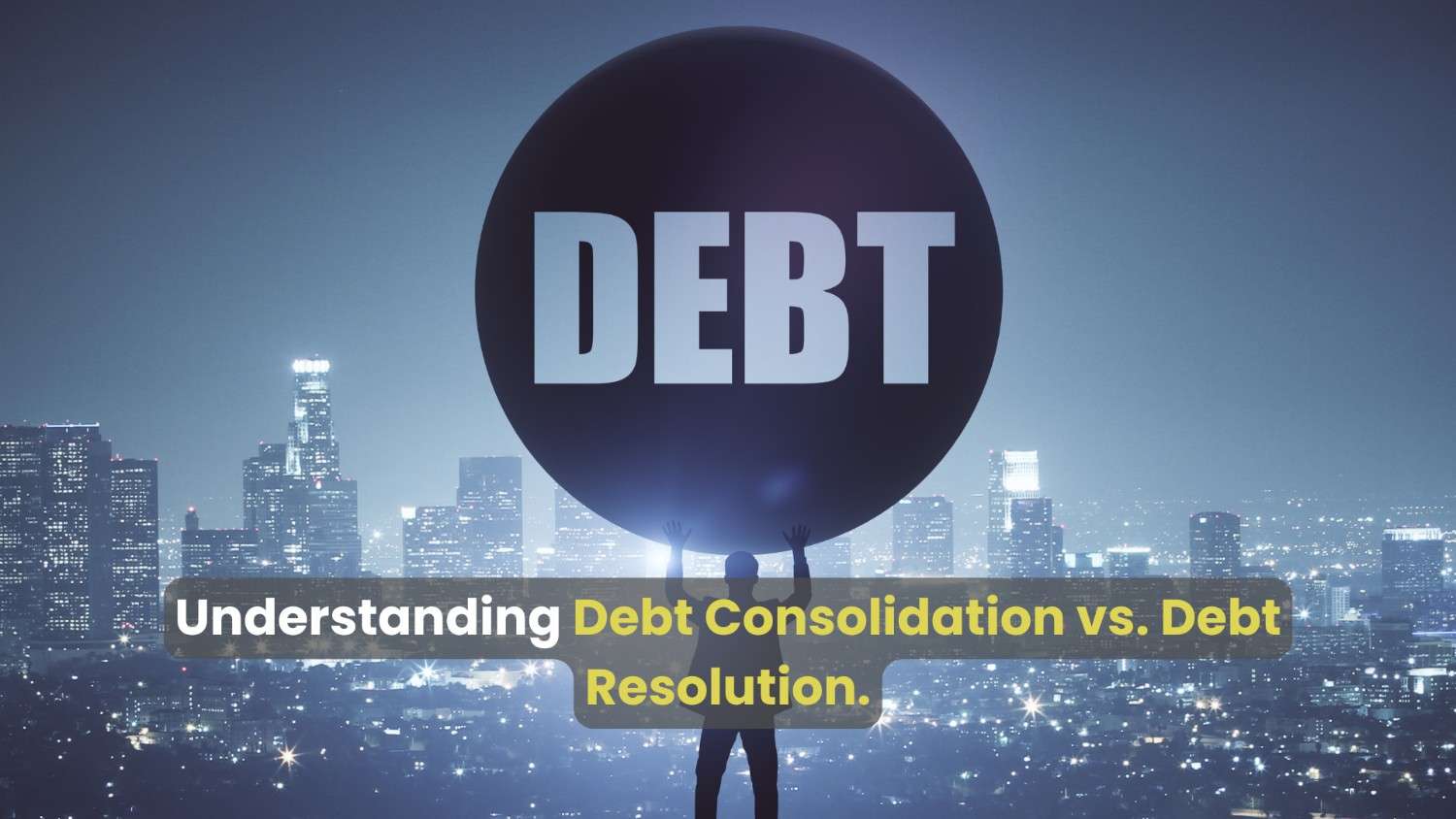· Debt Resolution · 4 min read
Debt Resolution: Legal vs. Non-Legal Approaches to Settling Debts
truggling with debt? Learn the key differences between legal and non-legal approaches to debt resolution. From bankruptcy to direct negotiations, explore the pros, cons, and real-life examples to choose the best path toward financial freedom.

What is Debt Resolution?
Debt resolution is the process of settling outstanding financial obligations in a way that helps individuals or businesses regain control of their finances. Whether the debt stems from unexpected emergencies, loss of income, or overspending, resolving it is critical to avoid long-term financial hardship.
Understanding Debt Resolution
Debt resolution offers structured methods to deal with unpaid obligations, aiming to reduce financial stress while minimizing the total amount owed.
Common Reasons for Debt Accumulation
People often fall into debt due to factors like unexpected medical expenses, unemployment, or poor financial planning. Understanding these triggers is essential for identifying the best resolution approach.
Legal Approaches to Debt Resolution
Legal methods involve formal processes guided by laws and regulations, providing structured frameworks to resolve debts.
Overview of Legal Debt Resolution Methods
These methods typically include bankruptcy filings, court-supervised debt consolidations, and legally mediated settlements.
Bankruptcy as a Legal Solution
Bankruptcy provides a fresh start by either liquidating assets (Chapter 7) or restructuring debts (Chapter 13). While effective, it comes with long-term consequences for your credit score.
Debt Consolidation and Court Involvement
Court-ordered consolidations combine multiple debts into a single manageable payment. This approach may include a formal repayment plan approved by a judge.
Pros and Cons of Legal Approaches
Pros: Protection from creditors, structured processes, potential debt forgiveness.
Cons: Costly legal fees, lasting credit score damage, and public record of proceedings.
Non-Legal Approaches to Debt Resolution
Non-legal methods offer more informal ways to manage debts, often focusing on negotiations and personal budgeting.
What Are Non-Legal Debt Resolution Methods?
These approaches involve working directly with creditors or through third-party services without court involvement.
Debt Settlement Companies
These companies negotiate with creditors to lower your total owed amount, often charging a fee for their services.
Negotiating Directly with Creditors
Individuals can reach out to creditors to request lower payments or interest rates. While daunting, this approach can save money and avoid additional fees.
Budgeting and Financial Counseling
Creating a budget and seeking advice from a financial counselor can help identify realistic repayment strategies.
Pros and Cons of Non-Legal Approaches
Pros: Lower costs, flexibility, privacy.
Cons: Limited protection from creditors, potential scams with settlement companies.
Key Differences Between Legal and Non-Legal Approaches
Understanding the distinctions between legal and non-legal methods is vital for making an informed choice.
Cost Implications
Legal methods often require higher upfront costs for attorney fees and court expenses, while non-legal methods can be less expensive.
Time Requirements
Bankruptcy and other legal processes may take months or years, whereas non-legal negotiations can be quicker.
Impact on Credit Score
Legal options typically have more severe and long-lasting effects on credit scores compared to informal negotiations.
Long-Term Financial Impacts
While legal resolutions offer definitive closure, non-legal approaches might require ongoing effort and discipline.
Factors to Consider When Choosing a Debt Resolution Method
Assessing your unique financial situation is crucial before deciding.
Financial Situation Assessment
Evaluate your income, expenses, and total debt to determine what you can realistically repay.
Long-Term Goals
Consider how each option aligns with your future financial objectives, such as buying a home or retiring comfortably.
Professional Advice
Seeking guidance from a financial advisor or attorney can help clarify the best path forward.
Real-Life Examples of Debt Resolution
Legal Debt Resolution Success Story
A small business owner filing for Chapter 13 bankruptcy successfully reorganized debts, allowing them to retain their assets while meeting repayment obligations.
Conclusion: Finding the Right Path to Financial Freedom
Debt resolution is not a one-size-fits-all process. By understanding the pros and cons of both legal and non-legal methods, you can make an informed decision to regain financial stability. Take the time to evaluate your circumstances and seek professional advice to create a tailored debt resolution plan.
FAQs on Debt Resolution
1. What is the difference between debt settlement and bankruptcy?
Debt settlement involves negotiating with creditors to reduce the owed amount, while bankruptcy is a legal process that may discharge or restructure debts.
2. Can I negotiate my debts without professional help?
Yes, but it requires patience, persistence, and a clear understanding of your financial situation.
3. How long does it take to resolve debts?
The timeline varies depending on the method chosen.
4. What are the risks of using a debt settlement company?
These include high fees, potential scams, and the risk of creditors not agreeing to the settlement.
5. Will debt resolution affect my credit score?
Yes, both legal and non-legal approaches can impact your credit score, but the severity and duration differ.



.Dceoa-1b.jpeg)